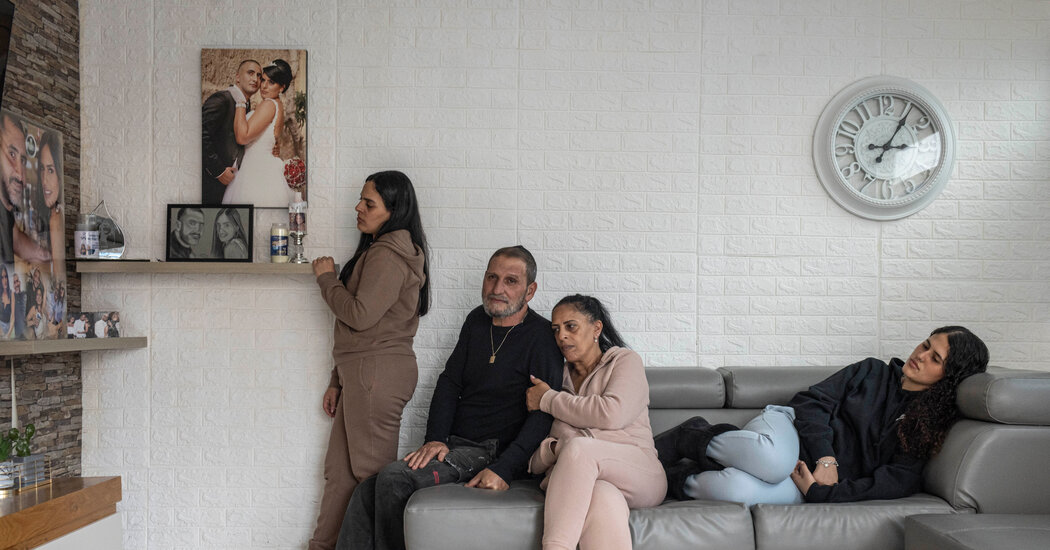[ad_1]
‘Screams without words’
A two-month investigation by The Times, including interviews with more than 150 people, uncovered painful new details about the attacks by Hamas on Oct. 7, established a pattern of gender-based sexual violence and identified at least seven locations where Israeli women and girls appeared to have been sexually assaulted or mutilated.
Israeli officials say that, in every place where Hamas terrorists struck — a rave, military bases along the border and kibbutzim — they brutalized women. Witnesses described instances of rape and murder in graphic detail. And soldiers and volunteer medics recalled finding more than 30 defiled bodies of women and girls. Many of the accounts are difficult to hear, and the visual evidence is disturbing to see.
Hamas has denied Israel’s accusations of sexual violence. Israeli activists have been outraged that the U.N. Secretary General, António Guterres, and the agency U.N. Women did not acknowledge the many accusations until weeks after the attacks.
Investigation: Top police investigators in Israel have gathered evidence where possible, but they have not put a number on how many women were raped, saying that most are dead — and quickly buried, according to Jewish religious custom — and that they will never know. No survivors have spoken publicly.
Witness account: Raz Cohen, a security consultant, saw a young woman, naked and screaming, being dragged by five armed men. He described how she was raped and then killed. “I still remember her voice, screams without words.”
In other news:
Russia retakes land from Ukraine
Russia is making progress around the southern village of Robotyne, recapturing land that Ukrainian troops took at the peak of their summer counteroffensive in the south.
With their counteroffensive stalled, Ukrainian troops are now on the back foot in many places, and Kyiv is increasingly worried that its military will not have the resources to keep up the fight.
Scandal: A celebrity party in Moscow with the dress code “almost naked” has resulted in tearful apologies, revoked sponsorships, canceled performances and, for one rapper, a two-week jail sentence.
A crackdown on critics in Burkina Faso
The military junta in Burkina Faso, a West African nation struggling to defeat extremist groups, has been forcibly conscripting those who have criticized the leadership for its failure to defeat the insurgents, and for abuses against the populations it is meant to protect.
Violence has surged under the military government, according to diplomats, aid workers and analysts. Burkina Faso has become a focus of the crisis in the Sahel region, an enormous swath of land south of the Sahara that has been shaken by uprisings and coups.
THE LATEST NEWS
Around the World
How to fix tennis: We asked players, executives and other influential people in the sport.
ARTS AND IDEAS
A warning to our imaginations
The explosive growth of A.I. technologies, including text-to-image generators, is not a threat to our species’ culture, Jason Farago, a critic for The Times, writes. Instead, it is a warning: We cannot let our imaginations shrink to machine size, nor can we allow the worlds of art and entertainment to further resign themselves to recommendation engines and ratings structures.
“To make something count,” Jason writes, “you are going to have to do more than just rearrange precedent images and words, like any old robot. You are going to have to put your back into it, your back and maybe also your soul.” Read his column.
[ad_2]
#Friday #Briefing #York #Times
